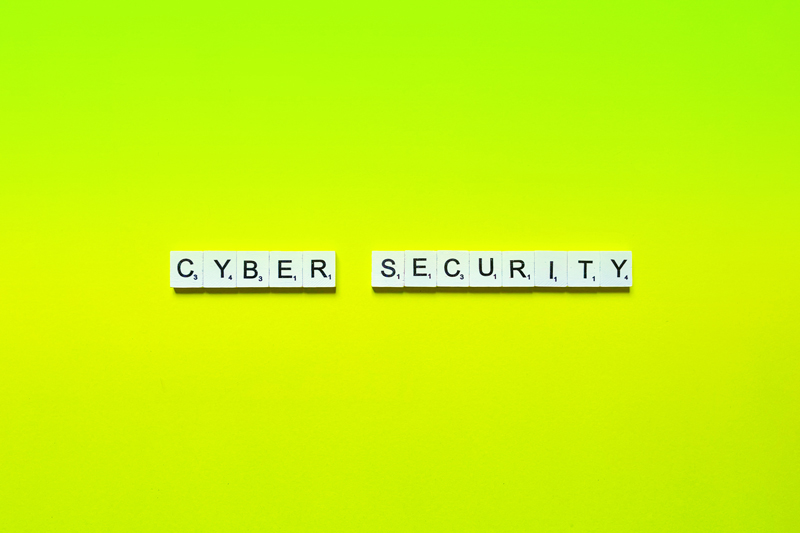
What is Cyber Security?

Cyber Security was the buzzword of 2022.
After Optus was breached in September and saw the data of 9.8 million customers stolen, including extremely sensitive information like their passport details and drivers’ licences; it seemed ‘cyber security’ was a term Australians became familiar with very quickly.
You might also have heard of large data breaches at ANU (200,000), Canva (137 million), ProctorU (444,000) and Service NSW (104,000). These breaches (plus Optus) alone, are 147.5 million users that had their data stolen from Australian business last year.
In Q4 of 2022, Australia has the highest data breach density in the world. source
As such, we have had a lot of clients asking us about our Cyber Security services, whether they need it for their business, what cyber security is and how it can help their business.
We’re going to explain for you:
- What cyber security is
- The types of cyber security
- How not protecting your business with cyber security could have an irreversible impact.
So, let’s get started…
What is Cyber Security
Cybersecurity is the terms for the protection of internet-connected systems, including:
- Networks
- Devices (Hardware)
- Programs (software)
- Data (sensitive information)
You’re protecting the above from attack, damage, or unauthorized access from:
- Hacking
- Malware
- Phishing
- and other forms of cybercrime.
The goal of cybersecurity is to ensure the confidentiality and integrity of your system by preventing, detecting, and responding to security breaches.
Cyber Security can be in place before an attack, to prevent any occurrence. But it can also be in place, as incident response, to investigate an attack and respond.
What are the 10 different types of Cyber Security?
There are several types of cybersecurity:
1. Network security:
Protecting a computer network from unauthorized access, misuse, malfunction, or destruction.
2. Mobile Security:
Protecting your mobile device from malicious apps, phishing and IM attacks.
3. Endpoint security:
Protection of devices such as laptops, smartphones, and tablets, from cyber threats.
4. Application security:
Protecting software applications from threats such as hacking, malware, and data breaches.
5. Cloud security:
Protecting data and applications that are stored and run on cloud-based platforms.
6. Data security:
Protecting sensitive data, such as financial information, personal information, and intellectual property, from theft or damage.
7. Disaster recovery and business continuity:
Planning and preparation for how an organization can recover from a cyber-attack or other disaster and continue its operations.
8. Identity and access management:
Controlling and monitoring who has access to a network and the information on it.
9. Email security:
Protecting email systems and messages from threats such as phishing, spam, and malware.
10. Internet of Things (IoT) security:
Protecting connected devices such as smart homes and wearable devices from cyber threats.
What is the impact of not protecting your business with Cyber Security?
We wrote an article on where Australia ranks for Cyber Security and Australia does rank well, but last year’s Q4 has highlighted that even the largest businesses, with the biggest budgets are not safe and cyber security for a business is absolutely essential.
Australian businesses can be fined for data breaches. Corporate entities can see fines of up to:
- $50 million
- Three times the value of any benefit obtained
- 30% of the adjusted turnover during the breach
But it doesn’t end there. Because, once you’ve addressed any financial penalties, you have to consider what the cyber criminals may have impacted.
Not only can cyber criminals steal financial information and transfer money, they can do damage and cause down time to a business, but more significantly, a public data breach could permanently damage your PR:
“Damages to an organization as a result of cybercrime (e.g., loss of revenue, stolen data or money, compliance fines, lawsuits, data restoration services) can be scary, but in my experience of speaking to executives about these very concerns, the biggest fear of a cyber breach is the damage to a company's brand, resulting in a loss of trust with clients, partners and employees.” source
Don’t let cyber criminals damage a business you have worked hard to build. Cyber Security doesn’t have to be complicated or difficult. Find an IT solution that provides tough, protective Cyber Security and keep your business and customers safe.
Have a question about Cyber Security? Get in touch.
< Back to News




 (03) 9874 5473
(03) 9874 5473 By Luke Smits - Founder & Operations Manager
By Luke Smits - Founder & Operations Manager